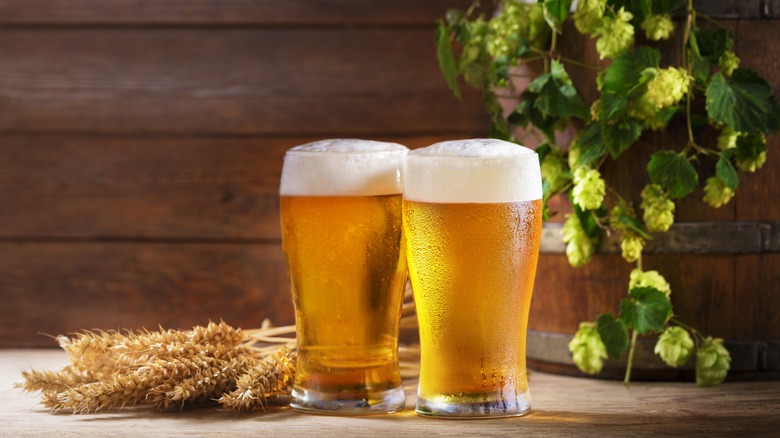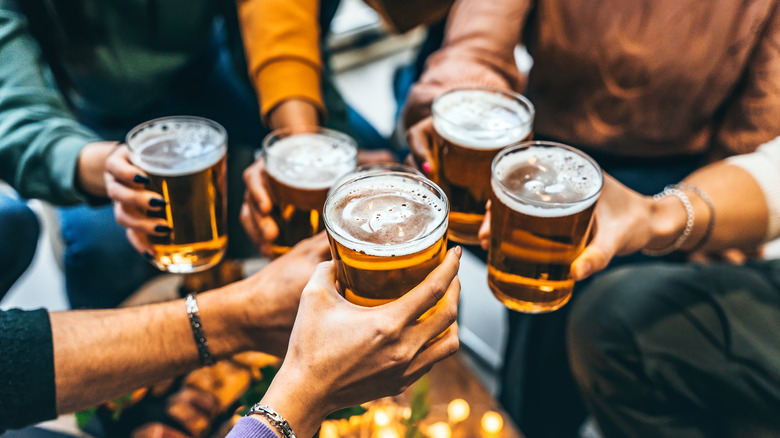Egyptians Actually Used To Get Paid In Beer
It's not uncommon for us to think of a job as something we do for "beer money" in today's world — most likely, this would refer to a part-time gig a college student might do for extra going-out cash. But centuries ago, salaries that were literally beer weren't uncommon. In fact, we can thank beer for the wonder that is Egypt's pyramids, because the laborers that built them earned a liquid paycheck.
Paystubs etched into tablets from 5,000 years ago have been found by archaeologists in places like Mesopotamia — or present-day Iran — showing workers received daily rations of beer, and historians know this was the practice in ancient Egypt, as well. Pyramid builders got four to five liters per day. You might be wondering how Egyptians managed to construct such sturdy, beautiful works on four or five beers a day, but the fact is that ancient Egyptian beer wasn't much like what we'd consider popular beers today. It was more like a thick, sludgy gruel.Think of it this way: When the agricultural revolution happened about 12,000 years ago and hunter-gatherers settled to farm, they realized that, when left out, the grain mixtures they intended for breads fermented into a tasty liquid with a little buzz. Fermented grain became the foundation of a beer tradition that would spread throughout regions and become interpreted differently with various spices and herbs. It's still the foundation of beer today, though ours isn't so thick we have to sip it through a straw.
Ancient beer was very different than beer we know today
Because the beer of ancient Egypt — as well as other regions — was closer to liquid bread and low in alcohol, it was seen more like a meal. It was carby and filling, with many of the same nutrients a person could expect from bread and herbs. Beer mostly remained low-booze until more modern craft brewing developed. Its long run as something maybe 2% ABV is where we get the myth that people throughout history drank beer because it was safer than water. It may have been in very congested cities, but for the most part, people had access to safe water. Beer, though, hearty and low-alcohol, was still a common staple with meals and even children drank it.
Once you understand how different beer was from the crowd-pleasing styles we see at breweries today, it makes more sense why workers were paid with this beverage. It was a source of nutrition that cut out the middle step: Instead of taking money to buy the beer you needed, you just got the beer directly from your employer. Egyptians especially valued beer for that nutrition as well as its taste and, when consumed in high enough volumes, inebriating powers. It was part of everyday life as well as religious festivals, and they even had a goddess of brewing, Tjenenet. Today, though, if you want to drink and work like an Egyptian, a closer comparison would be enjoying non-alcoholic brews.

